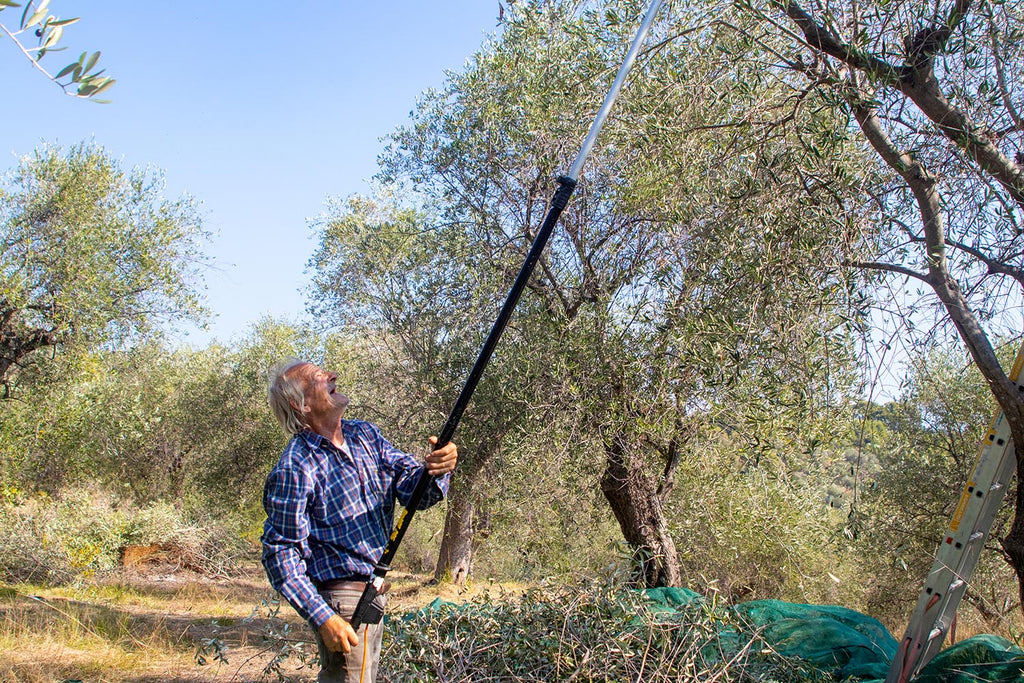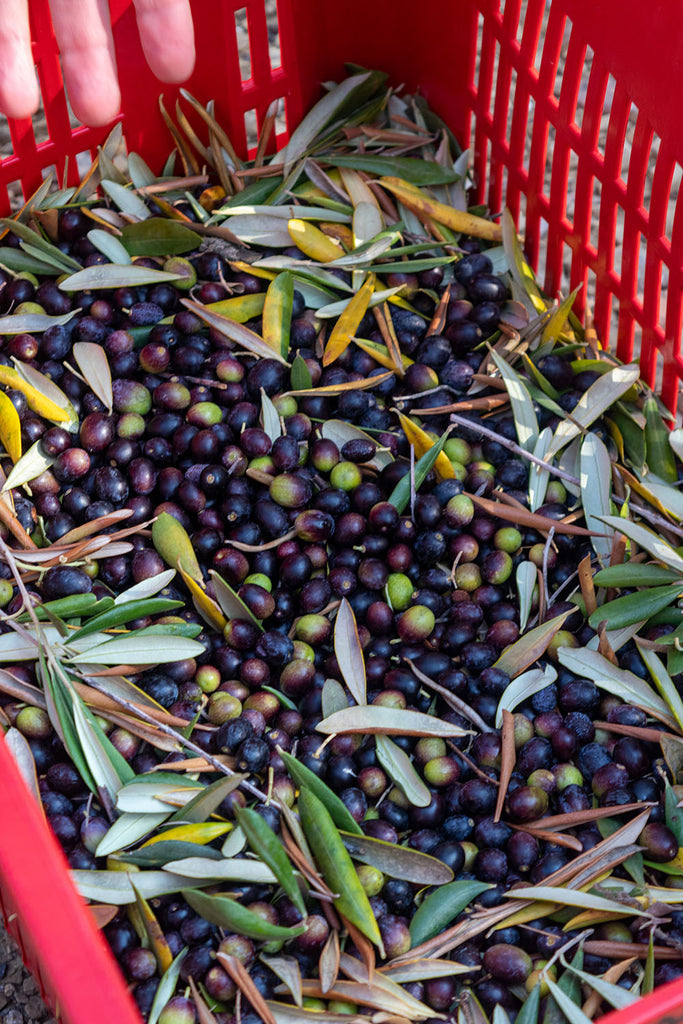All of your evoo questions, answered.
Extra virgin olive oil is so completely ubiquitous in cooking that just about everybody has a bottle (or many more, if you ask anyone on the Giadzy team) in their cupboard. We've all heard of evoo, but what exactly does the "extra virgin" even mean?
What is "extra virgin"?
In olive oil production, "extra virgin" refers to the way the oil is extracted from the olive. Extra virgin olive oil is made from whole olives by pressing or crushing them to extract the oil without the use of any heat or chemicals (aka cold pressing). This process results in the oil retaining the natural flavor and nutritional properties of the olives. Olives can be pressed several times to extract all of their oil, but only the first pressing can be called "extra virgin." The oil must also meet strict standards of quality and purity, and must have an acidity level of less than 0.8%.

The process of making extra virgin olive oil has been a tradition in Italy for thousands of years, and it is the backbone of Italian cooking. Italian olive oil is prized for its depth of flavor, which is influenced by a lot of factors. Every extra virgin olive oil will have a different flavor profile depending on the olives used, the age of the olives, whether it's a single-varietal or a blend, as well as the methods used to cultivate and harvest the olives
What are the benefits of extra virgin olive oil?
In addition to culinary uses, extra virgin olive oil famously has tons of health benefits. It's rich in healthy fats and antioxidants, which can help lower cholesterol levels, reduce inflammation, and protect against a multitude of diseases. It is also a good source of vitamin E, which is important for maintaining healthy skin and hair - which is why we love it as a beauty product in addition to cooking with it!

Can you cook with it?
The million-dollar question, often debated among chefs! The answer isn't so black and white. Sometimes you can cook with it, sometimes you shouldn't.
"Look for an 'everyday olive oil' and you should be just fine." says Giada. "In most homes, you'll never hit the high smoke point that would burn olive oil in a regular skillet. The only time you'd hit it is if you're cooking in a cast iron pan or grilling."
The smoke point is the temperature that the oil will start to smoke and break down, producing harmful compounds that can be detrimental to health and flavor. While extra virgin olive oil has a lower smoke point than other cooking oils (typically between 375-405°F), extra virgin olive oil actually has a unique chemical composition that makes it more resistant to breakdown when heated compared to other oils.
All in all, our rule of thumb is that the higher quality an extra virgin olive oil is, the less keen we are on cooking with it. Reserve the best bottles for drizzling, uncooked sauces and salad dressings - that way, you're getting all that rich flavor without potentially sacrificing any of it. Look for an everyday olive oil that has a more mild flavor for cooking (from our shop, we love to cook with Fratepietro, and Centonze, for example - but reserve our Gold-Wrapped Olive Oil for uncooked applications!)

How do I store it, and how long does it last?
Always keep your olive oil somewhere shaded, and ideally a cool location. A closed cabinet or cupboard is a perfect location, or a corner of the kitchen where the sun doesn't hit.
Once you open your olive oil, use it! It's not meant to sit and age for months on end - as it is comprised of fat, it can go rancid. We recommend using it within 2 months for optimal flavor, but you can generally keep it for longer than that. If you're not sure if it's still good, give it a quick smell test: if it smells musty or sour, it's time to throw it out.
Interested in perusing the world of extra virgin olive oil that Italy has to offer? Explore our collection of extra virgin olive oils from all over Italy!















0 comments